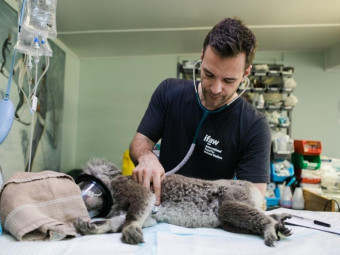Medicine is among the most demanding yet rewarding fields one can choose. But, before you make the decision, there need to know the reasons to become a doctor. You should be aware of every challenge, hurdle, and step one needs to go through before choosing this career path.
Here is a complete guide to becoming a doctor and steps to make the process easier for you. Medicine requires a considerable investment of time, effort, and money. So, be mentally prepared before choosing a career for the rest of your life.

Medical Career Outlook:
One of the super competitive and laborious fields – medical practitioners have loads of responsibility to serve humanity. But here’s a piece of good news;
Healthcare and medicine is among the fastest-growing fields that will continue to upsurge in the years to come. This means the demand for young doctors will increase even more. According to the 2019 statistics, the median pay of qualified doctors is almost $208,000 every year, along with a 4% growth rate (2019-2029).
The job outlook, however, depends on which sub-field you’re choosing for yourself.
Become a Doctor – 6 Easy-Step Career Path:
The process of becoming a doctor can be pretty complex since it’s a multi-step process. Here we’ll thoroughly discuss the seven steps to become a doctor. Let’s get into the nitty-gritty of each step. Read on.
Get Good Grades in High School:
If you want to pursue the medical career path seriously, you need to take high-school studies seriously. We’ve already mentioned that the field is competitive. Therefore the earlier you realize how vital high-school grades are, the better it’ll be.
Emphasize Science and Math:
To get into medical college, taking science and math classes is necessary. Moreover, keep your GPA as high as you can, which means you need to put all your effort to excel.
Take your SATs seriously:
Scholastic Aptitude Test (SAT) scores are critical. To get into a well-known med school, you need to have a high score on the SATs. You can start taking SATs in your junior year. Even if you don’t score well in your junior year, you can retake the test to raise your scores.

Submit Impressive College Applications:
Senior year is when you research and apply to colleges. Applying to a pre-med program isn’t necessary, but opting for science and math subjects can be helpful in the MCAT exam.
Get into a Recognized College:
This is when you need to focus on your study to prepare for a career in medicine. As an undergraduate, you need to complete a series of courses to have a solid basic knowledge of science and math.
To make sure you get into a good medical college, keep your grades a top priority. For this, other than hard work, you’ll also need to build good relationships with your Mentors and Professors. After all, they give you the letters of recommendation, and you don’t want to screw it up.
Take the MCAT Exam:
This is the Medical College Admission Test. This determines whether you are eligible for med school or not. This test is weighted quite heavily; therefore, you need to take it pretty seriously to secure your position in med school.
To get good scores on your MCAT, studying for almost 200-300 hours is necessary. Try not to focus on one subject only; give every issue equal time, so you don’t have to take it twice.

Apply for Different Medical Schools:
From filling and submitting the applications for med school – the process is extremely long. If you want to get into medical school, make sure you start sending out applications in your junior year.
Look out for different medical schools and apply to as many as you can. This way, you’ll have higher chances of getting into one.
Attend Medical School and Qualify the Boards:
Once you’ve enrolled in a medical school, you’ll study for almost four to five years, depending on your majors. The first two years of med school mainly involve classroom-based courses. In the third year, hospital visits begin where you are trained with actual patients. And in the final year, you study the primary elective courses based on your specialty.
Complete your Specialty:
Residencies, which are also known as paid internships, are positions at teaching hospitals. Here you have to spend almost three years practicing before you specialize in a specific sub-field.
After completing a three-year residency, you have to prepare for a licensing exam (USMLE-3). Once you’ve passed that, you can officially practice as a licensed doctor.

Conclusion:
If you want to pursue your career as a doctor, this guideline will help you out. For more information, stay connected.
 Install Studocu Chrome Extension
Install Studocu Chrome Extension









